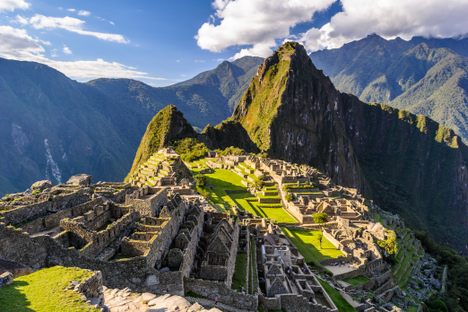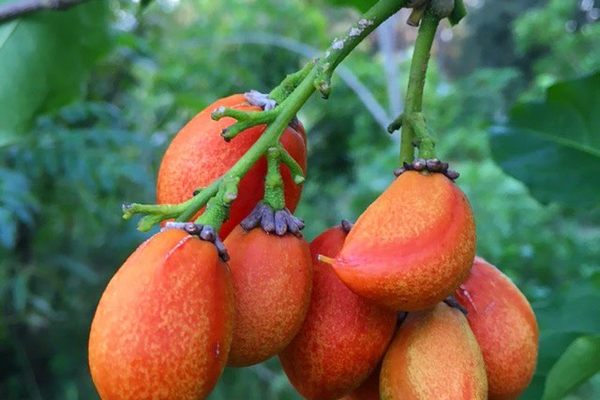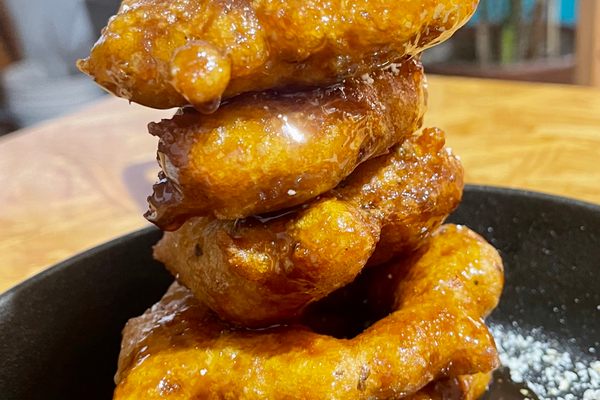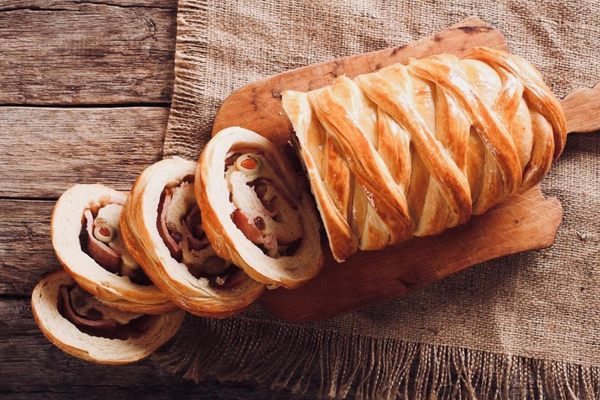In any given cup of ranfañote, salty cheese, dried fruit, and nuts mingle with crisp hunks of spiced, syrup-soaked bread. Peruvian nationalism, Spanish colonial influence, and the slave trade collide in an increasingly hard-to-find vintage dessert that captures a piece of history. Peruvian food writer Carlos Olaechea calls the finished product “sweet, complex, and addictively crunchy.”
The combination of stale bread and ingredients such as wild coquitos and salty cheese points to a chef motivated by resourcefulness and necessity. Many believe that enslaved people left to work with the scraps of their masters’ meals are the likeliest inventors, and Afro-Peruvians remain strongly associated with the dish. This small portion of the population (about 3 percent) is known for cooking with an unrefined, solid cane sugar called chancaca, as well as spices like cloves and star anise—all of which appear in ranfañote.
Still, Peruvians are at odds when it comes to tracing the origins of this dessert, which Olaechea calls “an allegory to the country’s racial politics.” Some suspect the bread pudding is the brainchild of soldiers who got creative with rations (cheese, bread, and cane sugar products) during the War of the Pacific against Chile. Others hypothesize that colonial Mestizo (mixed-race European and Amerindian) bakers were just looking for a way to use up stale loaves of bread.
Upon introduction to imported, sweetened milk products, Latin American pastry chefs adopted European techniques, leaving traditional desserts behind. The street vendors and bakers selling cheap ranfañote in little cups disappeared, and the once-children who bought them are now elderly. However, in recent years, chefs have taken an interest in reviving traditional Peruvian dishes before they fade into obscurity. Despite changing circumstances, ranfañote has found a new lease on cultural relevance. The fact that it’s delicious probably doesn’t hurt.
Where to Try It
-
Dulces Tina Mía
Av. los Insurgentes 111-103, San Miguel, 15087, PeruChef Tina Reyes has been making traditional Peruvian desserts for decades, including ranfañote.
Written By
 rachelrummel
rachelrummel



















